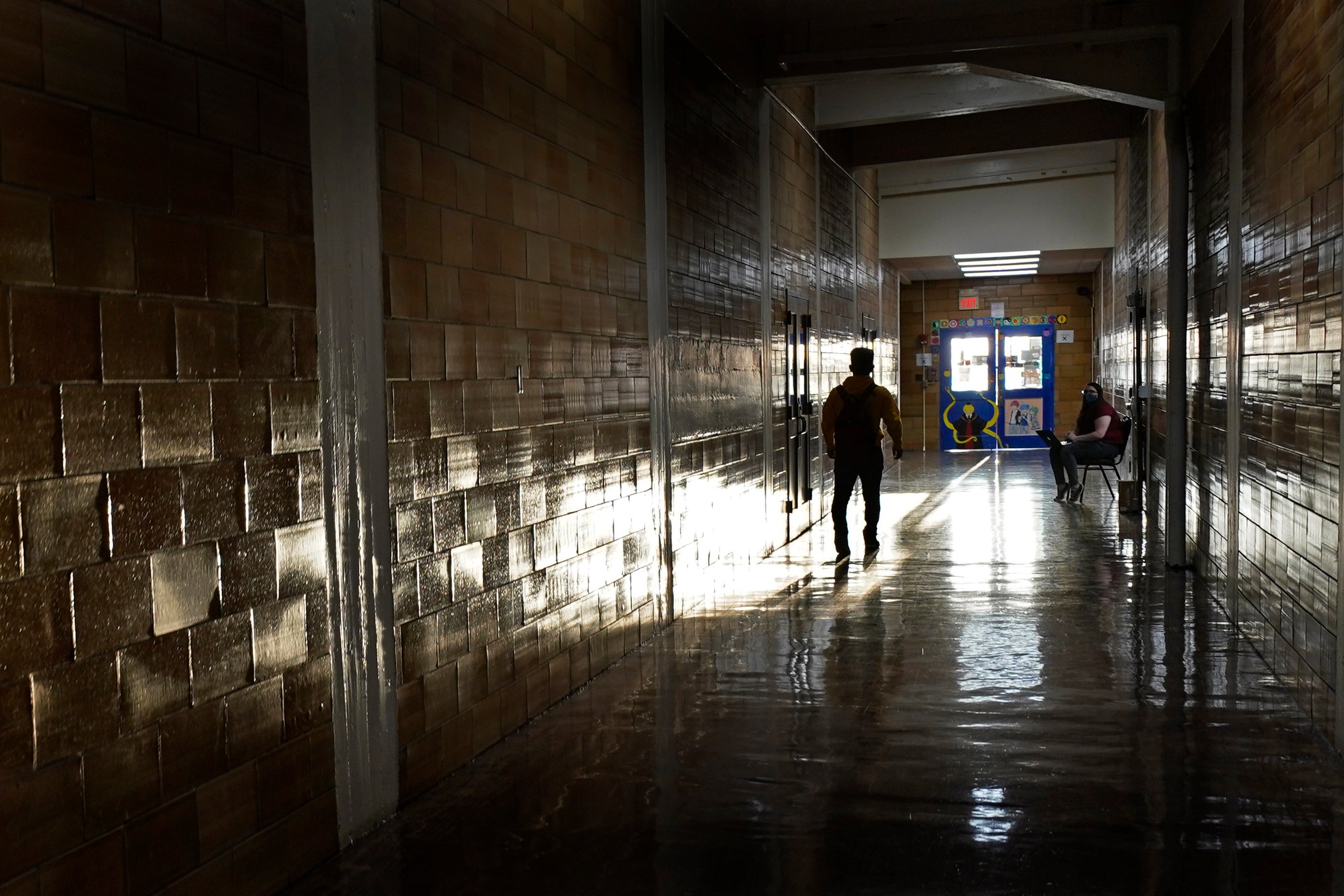Pandemic took a toll on teen mental health, US study says
New research says more than 4 in 10 U.S. high school students said they felt persistently sad or hopeless during the pandemic

Your support helps us to tell the story
From reproductive rights to climate change to Big Tech, The Independent is on the ground when the story is developing. Whether it's investigating the financials of Elon Musk's pro-Trump PAC or producing our latest documentary, 'The A Word', which shines a light on the American women fighting for reproductive rights, we know how important it is to parse out the facts from the messaging.
At such a critical moment in US history, we need reporters on the ground. Your donation allows us to keep sending journalists to speak to both sides of the story.
The Independent is trusted by Americans across the entire political spectrum. And unlike many other quality news outlets, we choose not to lock Americans out of our reporting and analysis with paywalls. We believe quality journalism should be available to everyone, paid for by those who can afford it.
Your support makes all the difference.More than 4 in 10 U.S. high school students said they felt persistently sad or hopeless during the pandemic, according to government findings released Thursday.
Several medical groups have warned that pandemic isolation from school closures and lack of social gatherings has taken a toll on young people's mental health.
“This really gives us the evidence to say with certainty that the pandemic was incredibly disruptive for young people and their families," said Kathleen Ethier of the Centers for Disease Control and Prevention.
The reports are based on anonymous online surveys of about 7,700 public and private high school students from 128 schools during the first six months of 2021. It is based on a similar survey the CDC conducts every other year in schools,
Among the findings:
—44% reported feeling persistently sad of hopeless during the past year. A similar survey before COVID-19 hit put the figure at 37%.
—66% said they found it more difficult to complete their schoolwork.
—29% said a parent or other adult in their home lost a job and 11% said they experienced physical abuse by a parent or other adult at home.
—24% said they went hungry during the pandemic because there was not enough food at home.
There likely was some underreporting, especially for certain questions about emotional or physical abuse in the home. Teens might be afraid that an abusive parent or other adult might see their responses, said Ilan Cerna-Turoff, a Columbia University researcher who studies children’s mental health.
CDC officials said that the pandemic did not affect teens equally. LGBT youth reported poorer mental health and more suicide attempts than others. About 75% said they suffered emotional abuse in the home and 20% reported physical abuse. By comparison, half of heterosexual students reported emotional abuse and 10% reported physical abuse, the CDC said.
___
The Associated Press Health & Science Department receives support from the Howard Hughes Medical Institute’s Department of Science Education. The AP is solely responsible for all content.
Subscribe to Independent Premium to bookmark this article
Want to bookmark your favourite articles and stories to read or reference later? Start your Independent Premium subscription today.